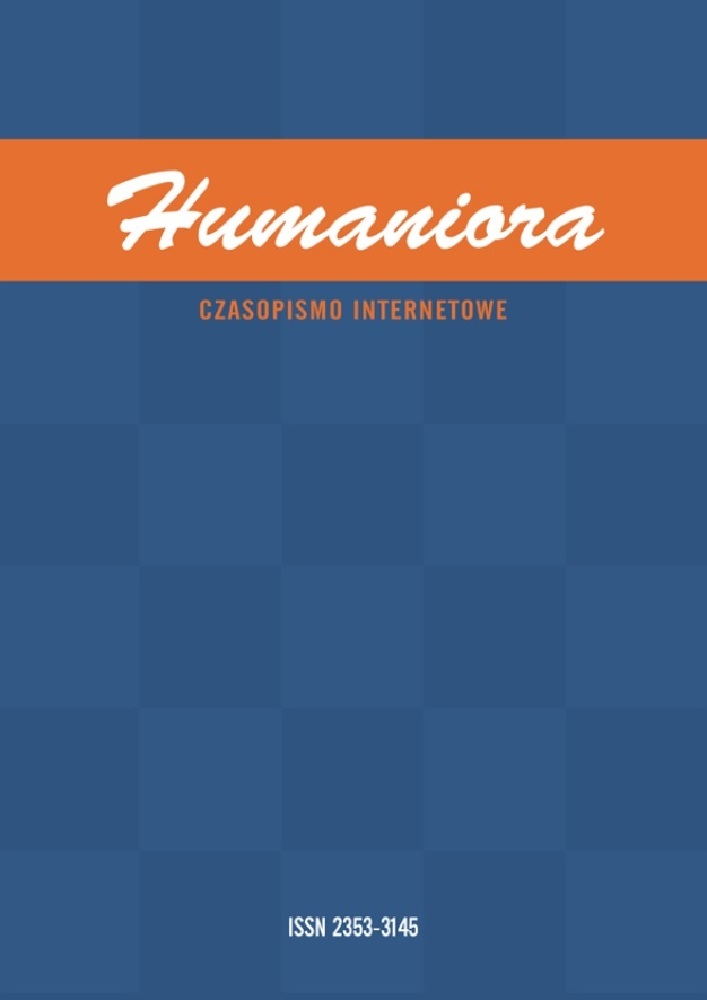Abstrakt
In breaking away from the dominant rituals, the sanctioned church holidays, and traditional rules of behavior, the article analyzes the placement of carnival culture on the margins of official culture, the inversion of social principles introduced into a reality devoid of constitutive norms in normal life, eliminating any social division by reversing values and destroying the existing order. A historical perspective raises important questions about the unparalleled features of the carnival, including the combination of people, regardless of their social and intellectual differences. In line with the adoption of the culture of laughter and its tools, the dynamics of carnival managed to assume a reversal, degradation, grotesque, bottom-up logic in order to bring people together and facilitate their interpersonal relationships.
Bibliografia
Bachtin M., Twórczość Franciszka Rabelais’go a kultura ludowa Średniowiecza i Renesansu, transl. A. Goreń, A. Goreń, Wydawnictwo Literackie, Kraków 1975.
Banach A., Wybór maski. Jedenaście teatrów klasycznych, Wydawnictwo Literackie, Kraków–Wrocław 1984.
Heers J., Święta głupców i karnawały, transl. G. Majcher, Oficyna Wydawnicza Volumen, Warszawa 1995.
Huizinga J. Homo Ludens. Zabawa jako źródło kultury, transl. M. Kurecka, W. Wirpsza, „SW Czytelnik”, Warszawa 1985.
Lechte J., Panorama współczesnej myśli humanistycznej, Wydawnictwo „Książka i Wiedza”, Warszawa 1999.
Le Goff J., Kultura średniowiecznej Europy, transl. H. Szumańska-Grossowa, Oficyna Wydawnicza Volumen, Warszawa 1994.
Turska I., W kręgu tańca, Państwowe Wydawnictwo Iskry, Warszawa 1965.
Licencja
Czasopismo oraz wszystkie zamieszczone w nim materiały są powszechnie dostępne i mogą być wykorzystywane do celów naukowych, edukacyjnych, poznawczych i niekomercyjnych bez konieczności uzyskiwania każdorazowej zgody autorów i redakcji. Nadesłanie artykułu do publikacji traktowane jest jako zgoda autora na udostępnienie swojej pracy i informacji w niej zawartych do powyżej wymienionych celów. W takich przypadkach należy jedynie wskazać źródło, z którego zaczerpnięte zostały informacje. Pobieranie opłat za dostęp do materiałów zawartych w czasopiśmie lub ograniczanie do niego dostępu jest zabronione.
Przesyłane do redakcji teksty muszą stanowić oryginalne prace, uprzednio nigdzie niepublikowane ani nie przedkładane innym redakcjom lub wydawcom. Autorzy nadsyłanych artykułów ponoszą odpowiedzialność za uzyskanie zezwoleń na publikowanie materiałów, do których prawa autorskie są w posiadaniu osób trzecich. Publikacja materiałów chronionych prawem autorskim jest możliwa pod warunkiem uprzedniego dostarczenia przez autora do redakcji pisemnej zgody właściciela praw autorskich.





